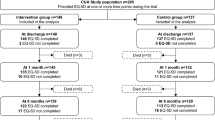Summary
In light of moves towards the view that rationing of healthcare resources is inevitable, the question arises as to whether age is a relevant consideration. To hold age as relevant in this context attracts the charge of agism; however, age may be related to some other characteristic(s) that are pertinent.
In the context of drug treatment of the elderly, there is evidence to suggest that there are important differences between older and younger patients in terms of adverse responses to drugs because of factors such as physiological changes and multiple health problems, which occur with aging. On the other hand, some studies show beneficial effects of drug therapy.
There is a need for more empirical data on cost effectiveness. Ethics arguably have to take into account factors other than cost effectiveness, such as equity. A central question is whether what is required is a set of criteria in addition to cost effectiveness, or an interpretation of cost effectiveness sensitive to broader considerations, such as quality of life (QOL). In relation to the latter, the issue of age-specific measurements of QOL remains problematic.
Similar content being viewed by others
References
Gennery B. The role of pharmacoeconomics. Br J Med Econ 1993; 6A: 3–4
Goldstein MK. Cost-utility estimates for geriatric medicine interventions: allocation of resources under health care reform. J Am Geriatr Soc 1994; 42: SA85
Berger A. Ageing world heads for health crisis. New Scientist 1995; 146(1976): 8
Niskanen M, Niskanen L. Is the acute physiology and chronic health evaluation (APACHE) scale agist? Drugs Aging 1994; 5(3): 153–5
The Netherlands Government Committee on Choices in Health Care. Choices in health care. The Netherlands: Zoetermeer, 1992
Harris J. The value of life. London: Routledge & Kegan Paul, 1985
Callahan D. Setting limits: medical goals in an aging society. New York: Simon & Schuster, 1987
Callahan D. Should health care for the elderly be rationed? Coron Artery Dis 1993; 4: 393–4
Porzsolt F, Zeeh J, Platt D. Palliative therapies in elderly cancer patients. Drug Ther 1995; 6(3): 192–209
Adamcik B, Rhodes R. The pharmacist’s role in rational drug therapy of the aged. Drugs Aging 1993; 3(6): 481–6
Gerety M, Cornell J, Plichta T, et al. Adverse events related to drugs and drug withdrawal in nursing home residents. J Am Geriatr Soc 1993; 41: 1326–32
Balducci L. Perspectives on quality of life of older patients with cancer. Drugs Aging 1994; 4(4): 313–24
Bearden D, Allman R. Should hyperlipidemia in the elderly be treated? Drug Ther 1992; 22: 41–52, 88
Fletcher A, Bulpitt C. Quality of life and antihypertensive drugs in the elderly. Aging Clin Exp Res 1992; 4(2): 115–23
Fletcher A, Dickinson E, Philp I. Review: audit measures: quality of life instruments for everyday use with elderly patients. Age Ageing 1992; 21: 142–50
Tindall H, Paynter S, Henderson M. Improvement in quality of life with insulin therapy given to older patients with poorly-controlled type 2 diabetes. Diabetic Med 1991; 8 (1 Suppl.): 31
Balducci L, Schapira D, Lyman G. Adjuvant treatment of breast cancer with tamoxifen in women aged 75 and older: a decision analysis. J Am Geriatr Soc 1991; 39(8): A67
Chadwick R. Justice in priority setting. In: Smith R, editor. Rationing in action. London: BMJ Publishing Group, 1993: 85–95
Schneider J, Kavanagh S, Knapp M, et al. Elderly people with advanced cognitive impairment in England: resource use and costs. Ageing Society 1993; 13: 27–50
Phillimore P, Beattie A. Health and inequality in the northern region 1981–1991. Newcastle: Newcastle Department of Social Policy, Newcastle University, 1994
Mackenbeth JP. Socioeconomic inequalities in health in the Netherlands: effect of a five-year research programme. BMJ 1994; 309: 1487–91
Kronenfeld JJ. Controversial issues in health care policy. London: Sage Publications, 1993
Davey P, Malek M, McMurdo M, et al. Economics of infection at the extremes of age. J Antimicrob Chemother 1994; 34 (A Suppl.): 129–43
Zirker W, Gaffney J, Ouslander J. Effects of terodiline on the quality of life in older women with urge incontinence. J Am Geriatr Soc 1992; 40: SA37
Recchia G, de Carli G, Parise G, et al. Quality of life: a new approach to the assessment of the pharmacological treatment in the elderly patient. Arch Gerontol Geriatr 1991; 2 Suppl.: 33–8
Author information
Authors and Affiliations
Rights and permissions
About this article
Cite this article
Chadwick, R., Levitt, M. When Drug Treatment in the Elderly Is Not Cost Effective. Drugs & Aging 7, 416–419 (1995). https://doi.org/10.2165/00002512-199507060-00002
Published:
Issue Date:
DOI: https://doi.org/10.2165/00002512-199507060-00002




